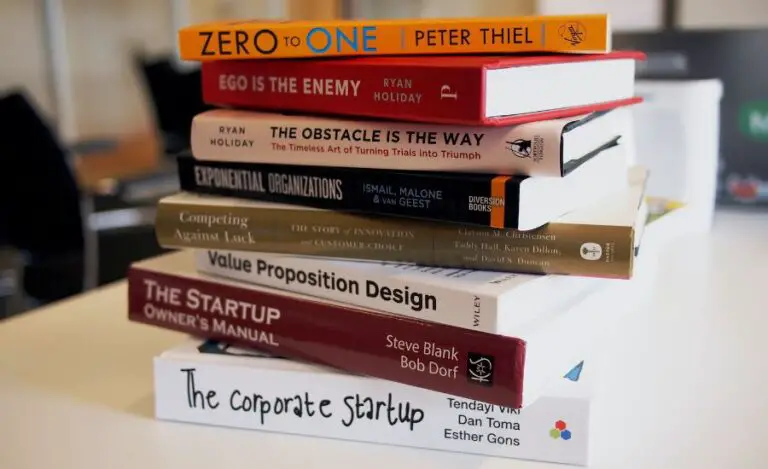Rich Dad Poor Dad: Best Financial Management Book
You must have heard everyone talk about how rich they aspire to become. As a matter of fact, we’re always keen to know about ways that can make you more money. After all, everyone wants to grow richer by the day.
With that said, handling your hard-earned money is even more important than earning it. Yes, you heard that right! Most billionaires today claim that the secret behind their wealth position is the way they manage their finances.
So if you really want to be rich, you should prioritize financial management. But what should you first do to understand financial management? The answer is simple. Just read about the experiences of those who were once like you and became affluent over the years.
Today, I will discuss the best book for financial management you can get hold of. I am sure it will be of help to you. The book is none other than Rich Dad Poor Dad by Robert T. Kiyosaki.
Many must have heard about the title before, and if you haven’t, you are missing out on something amazing. Well, let’s take a deeper dive on this… shall we?
Rich Dad Poor Dad: About the author
The author of the book Rich Dad Poor Dad, Mr. Robert Toru Kiyosaki is a renowned American businessman who founded the Rich Dad Company and the Rich Global LLC.
Through these mediums, he attempts to educate individuals on the topics of wealth and finance. He offers to teach financial education which is so important in the current times.
What does the book talk about?
As the title suggests, the book is home to the story of a boy who has two fathers, one of whom is rich and the other is poor. His biological father is qualified and educated but doesn’t have money.
On the flip side, his best friend’s father is academically poor but financially strong, which makes him a rich dad. Through the chapters in the book, Kiyosaki enlightens his readers with numerous illuminating experiences and breaks some common myths about money.
Talking about crucial subjects like saving, investing, and clearing one’s liabilities, he educates the readers on personal finance. He writes about how he applied every concept in his life so that readers can envision the practical application of the book.
Also Read: How To Pull Yourself Out Of The Poverty?
Some thoughts of wisdom from the book
I would list some valuable quotes from the book which hit me hard. They are:
- It’s not how much money you make. It’s how much money you keep.
- You are the image of your thoughts.
- Great opportunities are not seen with your eyes. They are seen with your mind.
- There is a difference between being poor and being broke. Broke is temporary. Poor is eternal.
- I’d rather welcome change than cling to the past.
- Learn to use your emotions to think, not think with your emotions.
- People who avoid failure also avoid success.
- Leadership is what you need to learn next.
- If you realize that you’re the problem, then you can change yourself, learn something and grow wiser.
Some of the best lessons that the book teaches its readers
The book attempts to preach some valuable lessons worth mentioning which are listed below.
Practice personal finance
You must learn to be responsible for your money and that’s exactly what the author says. Handle your finances and boost your savings by keeping unnecessary expenditures minimal. Invest your savings into assets as they guarantee you security in the long term.
Saving is more important than earning money, and you should teach your kids the practice of saving and managing their money too. Although a very obvious topic, the author explains it in such a wonderful way that it’s imperative to mention it here.
Keep your emotions away from your finances
Man is a puppet to his emotions and this book highlights the need to keep one’s emotions limited and well apart from money. People tend to indulge in huge expenditures just for the sake of satisfying the heart and end up losing loads of money in due course.
You should listen to your heart but not to the extent of seeing handfuls of money going out of your pocket. Control yourself when you fall prey to your desire for buying a new luxury. Instead, save it for rainy days.
Don’t indulge in the rat race
You have that ‘extra’ factor to be extraordinary and out of the ordinary. Believe in yourself and stop running the rat race because it is endless. Pave your own path and find ways to reach your destination.
Save as much as possible and channel your savings into fruitful investments for a secure future. You must have sufficient assets to support you and your family even during the toughest of times.
Build on your skills
This is some of the best advice the author has for readers. Developing a strong skill set is the key to landing a great job or running a million-dollar company.
Leadership, marketing, negotiations, teamwork, and management are some values you should imbibe if you want to see yourself supervising hundreds of people under you in the long run.
Some irrelevant lessons from the book that might not work today
While discussing some sensible and knowledgeable ideas, the author speaks about some lessons that don’t seem as relevant in today’s times. The book could have been better off without them too. They are:
Start your own business as employees are unhappy
One mindset that the author repeatedly emphasizes throughout the book is the preference of starting your business over working for someone. He says that if working as a slave earns you a fortune, you will still be a slave to someone.
I accept that you can’t be your own boss in a job, but so many people find stability and financial security through their jobs. Employees can also successfully climb up the organizational scalar chain to earn superior positions in an organization.
Sitting on your chair like a boss and commanding instructions to hundreds who work under you sounds amazing. But it doesn’t mean that those with jobs can’t find happiness.
Invest in real estate if you want to be rich
Rich Dad Poor Dad highly promotes investing in real estate to be rich. I don’t quite agree here either. Look out into the world, there are a thousand opportunities that can fetch you money.
The author says that the real estate business will certainly give you great returns like no other business. It is a great avenue, but in reality, it is just like any other investment.
It involves some extremely huge and inevitable risks for the investor and demands a high level of expertise and knowledge that usually comes with years of experience.
The rich don’t require an academic education
Another concept discussed in the book that I don’t understand is that there is no need for academic education if you want to be rich. Well, there are always chances that you may get lucky in your initial years of running a business.
But it doesn’t insinuate that you don’t need to educate yourself. Besides, education has so much more to offer than just theories and concepts.
You get to learn values like leadership through your years of education. Bringing down the value and importance of academic learning is something not appreciable.
Save for yourself first, pay your creditors later
The last and most astounding idea the book preaches is that you should pay yourself first and then pay your creditors. This means that even if you owe money to the bank or the tax-collecting authorities, you should focus on your savings first.
Increasing your fees and interest on loans and negatively affecting your credit score when you can easily afford to clear your dues doesn’t sound logical. It is very important to save money but not at the cost of bothering people, creating a bad impression of yourself, and getting into trouble.
One must try paying off creditors and then decide how much he/she can afford to deposit into savings.
Why is the book worth a read?
Although this book has some outdated and unrelatable concepts, still I have to confess that it is a gem. The extent of insights you would get by reading it is just out of one’s imagination. The first thing that one needs to ignite the fire inside for envisioning the end goal is an inspiration.
And I can vouch that this book has loads of it. It talks about some great practices that will help you get wealthier over time. The only drawback is that you wouldn’t find a lot of practical help to apply those concepts in life.
Never mind, it is a wonderful read for both newbies and experts in the field of finance. It will introduce you to ideas that you must know before starting a new journey with your finances. Get a copy, you wouldn’t regret it.





